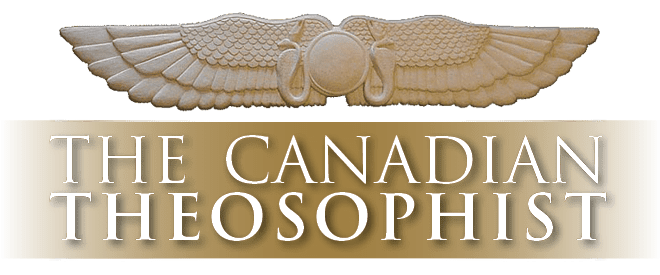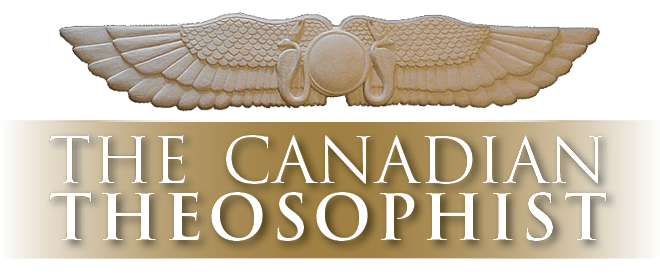By Rodman R. Clayson
Grand Master’s Message from 1959
The contemplative attitude involves the practice of meditation. The most comprehensive definition of contemplation is that it is a process of orderly reflection upon what we have done, what we propose to do, and what it all means in the larger framework of our highest values and basic responsibilities. Contemplation is the interrelation of thought. Contemplation helps to reveal life underlying meaning and purpose; it includes desire, which is often expressed in the form of petition, but petition- the effort to get inspiration that will be helpful- while a part of meditation, is only an incidental part of the whole process. Meditation, contemplation, petition, thanksgiving, each represents an attitude of mind and spirit essential to a sound mystical life. Each one of these parts is important to all the others. Taken together, they add up to the fullness of life, a life of profound and thoughtful reflection.
We must empty our minds of the idea that contemplation depends upon the use of particular words and phrases drawn from the archaic languages of the past. We need not think in terms of thou, thee, and thy. It does not matter that your petition should imitate neither the stately language of ancient times nor attitudes of body such as kneeling, closing the eyes, or bowing the head. These would not have any significance except as they aid in the concentration of the mind. Concentration essentially is a mental and emotional discipline, a training of the mind and will, a focusing of the consciousness. Contemplation does not depend upon words and gestures, but upon the sincerity and integrity, and patience with which we undertake to live an active and orderly mystical life, in which we frequently reflect upon the meaning of our action. Thanksgiving, which everyone experiences or should experience, has to do not only with a form of gratitude toward specific persons for specific gifts and benefits, but that more general gratitude that moves a man simply to appreciate and enjoy the world and the wonder of life and the variety of possibilities and challenges that fill it. Contemplation, like prayer, traditionally involves giving praise and expressing thankfulness. Sometimes that thankfulness is simply man’s spontaneous rejoicing in the fact of his own life and the lives of others in the world of nature, in the wonder and beauty of being alive. Everyone, to a more or less degree, partakes of the experience of contemplation. Everyone knows something of self-examination. It is necessary for man to examine his life, to make searching and thoughtful judgment, to measure his words and acts by the standard of necessity and excellence. Often he needs help in this process-cosmic help.
Self-examination more or less goes on continuously in our hearts and minds. It is a necessity of self-knowledge and self-understanding. Socrates said, “Unexamined life is not worth living.” We must examine ourselves to find out who we really are, what we mean, and what we most truly want to be in this process we must strip away the many self-deceptions and evasions which we all practice. In our self- examination we should try to get outside ourselves so we can see ourselves as we truly are. We put aside the flattery or the condemnation, which the world accords to that part of us which the world, can see. We disengage ourselves from the illusions and poses, which make up so large a part of our daily active life. We try to dig deep into the impressions, which we make on others, the picture of ourselves, which we would like the world to see, and find out what we are really worth. If we are faithful and patient, a new picture of ourselves begins to emerge. We accept our limitations; we admit that perhaps we are not as good as we wish people to think we are nor indeed as good in our hearts as we truly want to be. There must be self- acceptance. We must not delude ourselves.
In contemplation you go into the quiet of your inner self, search your heart and mind in an effort to win inner wholesomeness, integrity, and self- knowledge. Honest self-examination is necessary. It is the effort to think things imaginatively and sensitively until we know what we ought to do and be or at least until we can see what the next step is. A good deal of what is loosely called contemplation and meditation today is not much more than idle day dreaming, directed thought requires concentration, and when we associated with contemplation is a sober effort to clarify the main purposes and meaning of life. This requires a high degree of concentration and persistence. It involves the effort to increase wisdom through imagination. We are growing toward a deeper understanding. We discipline ourselves and refine our desires until those, which we presume to contemplate on, are the very best that we have. Even those desires must be offered with the full realization that in the light of wisdom greater than ours and more perfect than any we know, they may not be possible, or even good. It is probably fortunate that some of our desires for which we petitioned most earnestly were never realized. In the simple direct expression of our best desires and for ourselves and for others, and for the world, we are not challenging God and the Cosmic to interrupt natural order and break down natural law in our own behalf; rather we are seeking to understand that order more truly and find our place and responsibility within it.
Contemplation is a meditation mood in which we reflect, ponder, analyze, consider and express our feelings, thoughts, desires, and concerns. In true mystical meditation, we simply endeavor to open ourselves and be receptive. We do not dwell on the problems and failures of life. We dwell on that which is beautiful and inspiring, that which invites infinite impressions. This is perhaps the most difficult thing to do because it is our habit to be very active, and silence and solitude do not produce a condition to which we are normally attracted. All of us from time to time need to step aside from the world and its concerns, to be still and know, to receive rather than to give, to be inwardly renewed and reassured. There are depths in the inner self beneath all words, ideas, and activities. In meditation you quietly and reverently withdraw to the inner self.
The meditative silence is a familiar thing to mystics, poets, artists, and deep thinkers. Out of it have come some of their most creative insights, the necessary strength for the task to be done, the capacity to love and to serve and to care deeply. Many busy people have learned to make little islands of quiet meditation in the midst of their day, so there will be time for them to collect themselves and bring to their most important decisions the perspective of deep and quiet mind. The mystic finds his inner life enriched and strengthened by contact with the inner self.
(To be continued)

